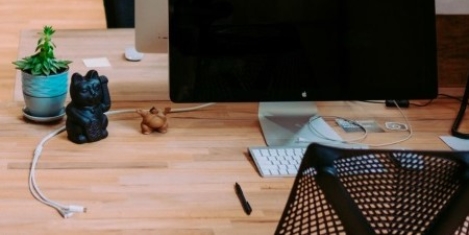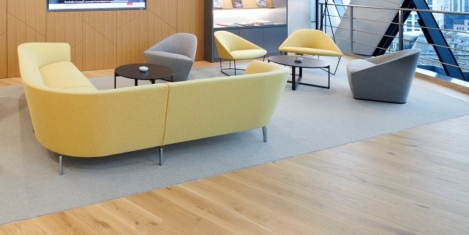To provide the best experiences, we use technologies like cookies to store and/or access device information. Consenting to these technologies will allow us to process data such as browsing behaviour or unique IDs on this site. Not consenting or withdrawing consent, may adversely affect certain features and functions.
The technical storage or access is strictly necessary for the legitimate purpose of enabling the use of a specific service explicitly requested by the subscriber or user, or for the sole purpose of carrying out the transmission of a communication over an electronic communications network.
The technical storage or access is necessary for the legitimate purpose of storing preferences that are not requested by the subscriber or user.
The technical storage or access that is used exclusively for statistical purposes.
The technical storage or access that is used exclusively for anonymous statistical purposes. Without a subpoena, voluntary compliance on the part of your Internet Service Provider, or additional records from a third party, information stored or retrieved for this purpose alone cannot usually be used to identify you.
The technical storage or access is required to create user profiles to send advertising, or to track the user on a website or across several websites for similar marketing purposes.
 The pandemic has totally shattered workplace norms, so it’s going to take a while before we see organizations returning to work at full capacity. When it does happen, it will require extensive planning and constantly evolving styles of people management. In addition to the logistics of phasing people back into the office and staggering shifts, you’ll need to work with your team to address their anxieties and make sure they feel comfortable in their environment. (more…)
The pandemic has totally shattered workplace norms, so it’s going to take a while before we see organizations returning to work at full capacity. When it does happen, it will require extensive planning and constantly evolving styles of people management. In addition to the logistics of phasing people back into the office and staggering shifts, you’ll need to work with your team to address their anxieties and make sure they feel comfortable in their environment. (more…)








 The pace of deterioration in UK job prospects is starting to slow this autumn due to very modest improvements in planned recruitment activity and a slight decrease in employers’ intentions to make redundancies. This is according to the latest quarterly
The pace of deterioration in UK job prospects is starting to slow this autumn due to very modest improvements in planned recruitment activity and a slight decrease in employers’ intentions to make redundancies. This is according to the latest quarterly 


 New research commissioned by
New research commissioned by 


 A new study by independent job board,
A new study by independent job board, 
 There are some good things about working in an office. Constant supplies of tea and coffee (if you’re lucky), gossip with your co-workers, and paper clips in every colour. But one of the best things has to be that when something goes wrong with your computer, the in-house IT helpdesk will have it sorted out quicker than you can say ‘so which buttons do you want me to press?!’ However, home workers don’t have this luxury.
There are some good things about working in an office. Constant supplies of tea and coffee (if you’re lucky), gossip with your co-workers, and paper clips in every colour. But one of the best things has to be that when something goes wrong with your computer, the in-house IT helpdesk will have it sorted out quicker than you can say ‘so which buttons do you want me to press?!’ However, home workers don’t have this luxury. 
 2020 has been the most stressful year in history for the global workforce and people want robots to help, according to a new study by
2020 has been the most stressful year in history for the global workforce and people want robots to help, according to a new study by 












November 10, 2020
What Carl Sagan could teach us about knowledge and information
by Mark Eltringham • Comment, Flexible working